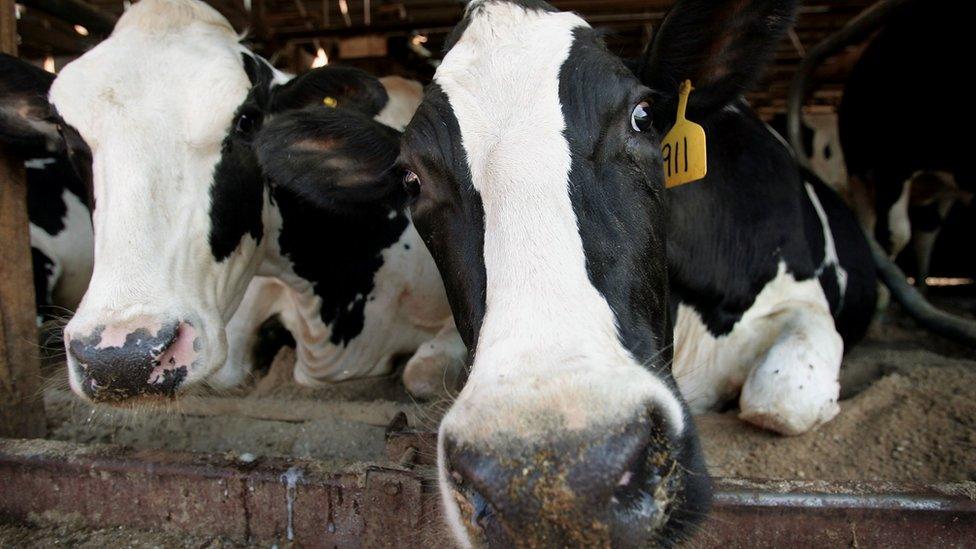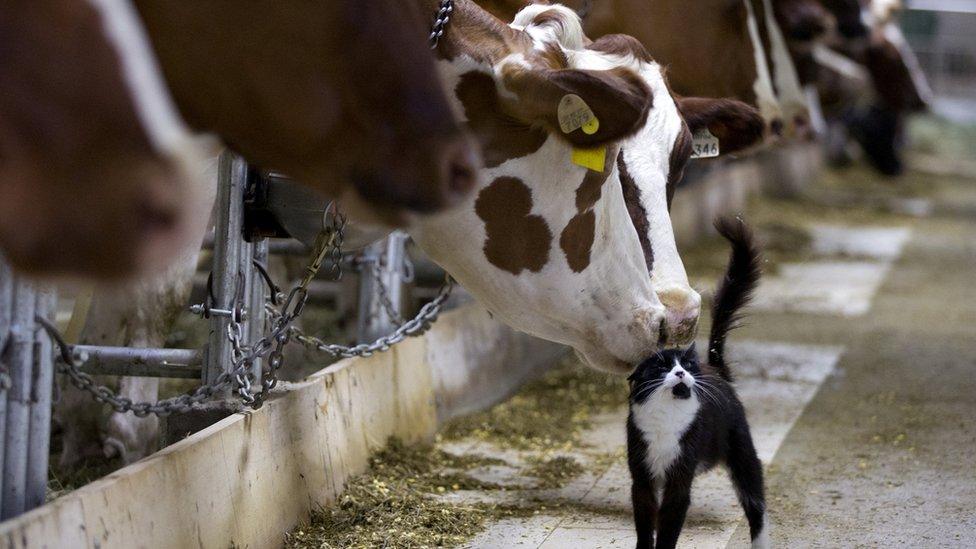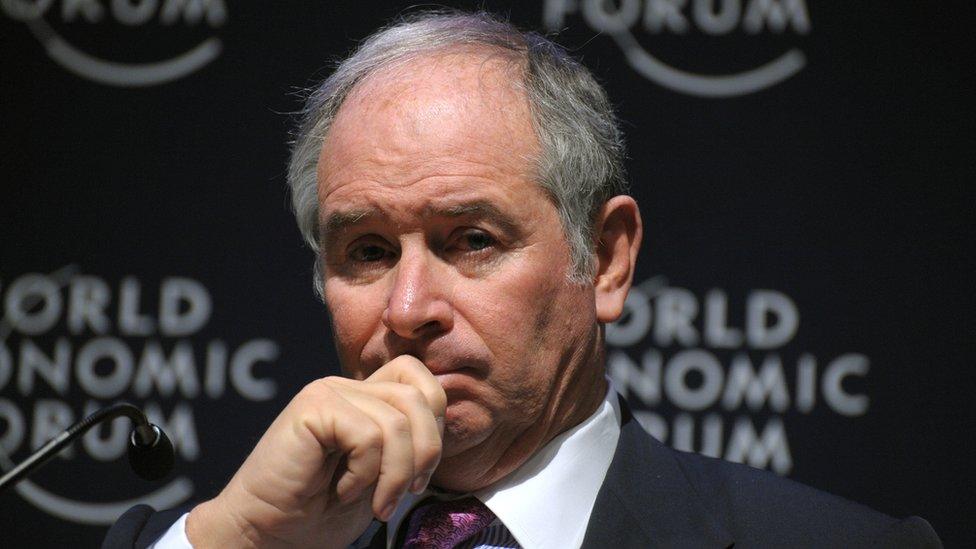Canada hits back in dairy dispute with the US
- Published

US dairy organisations have been lobbying the Trump administration to review Canadian dairy policies
Canada is pushing back over US President Donald Trump's criticism that its protectionist dairy policies are hurting US farmers.
Mr Trump targeted Canada's dairy sector as "unfair" in a recent speech in Wisconsin.
Dozens of the state's dairy farms face being dropped by their milk buyer, external after new Canadian pricing put a dent in US milk protein exports.
Canada's ambassador says that Canada is being unfairly maligned.
"Canada does not accept the contention that Canada's dairy policies are the cause of financial loss for dairy farmers in the United States," Canada's envoy to Washington, David MacNaughton, said in a letter to the governors of New York and Wisconsin.
"The facts do not bear this out."
Mr MacNaughton instead laid the blame at the feet of "US and global overproduction" and the difficult "global situation" of low world dairy prices, which is a problem faced by farmers on both sides of the border.
The ambassador also noted that the current dairy trade balance favours the US five to one - a point he underscored again during a news conference on Wednesday.
Canada protects its dairy sector by putting high tariffs on imported products in order to keep prices high for its farmers.
This has been a source of irritation for other dairy-producing countries.
Lawmakers from dairy producing states like Wisconsin and New York, as well as American dairy organisations, have been lobbying the president for months, external to take on the Canadian dairy industry for practices they say are in violation of trade commitments.
At issue is a new pricing agreement struck last spring by Canada's dairy farmers and processors that industry groups in Australia, New Zealand, the European Union, Mexico and the United States, external say would price domestic milk ingredients, used for making cheese and yoghurt, below cost.
American groups say that agreement means US exports of these high-protein milk products are being elbowed out of the Canadian market for a domestic supply, costing US farm jobs.

Dairy cows nuzzle a barn cat as they wait to be milked at a farm in Granby, Quebec
Canada's cheesemakers have been importing a growing amount of what is called "diafiltered milk" or "ultra-filtered milk", a commodity that can cross the border tariff-free unlike other dairy products.
Those exports increased from US$33m (£25m) in 2011 to US$98m (£76m)in 2016.
The US dairy industry says that agreement led to Wisconsin and New York companies losing millions of dollars in ultra-filtered milk exports due to a drop in demand for the ingredients from Canada.
This is not the first time Canada's dairy industry has been criticised for being overly protectionist.
Ottawa operates a supply-managed system that tightly controls production and imports to support prices.
Canada has also fiercely protected its dairy industry in recent trade deals, from the Trans-Pacific Partnership to Ceta, the Canada-European Union deal.
On Wednesday, Australia and New Zealand dairy industry leaders said they would support any moves by Washington to draw the World Trade Organization into a trade dispute with Canada.
University of Toronto political scientist Grace Skogstad says that while the Canadian dairy sector is "vulnerable" to external trade pressures, it has weathered disputes before, including under the North American Free Trade Agreement.
"This has been an issue for a very long time, Trump or no Trump," she said.
- Published23 January 2017

- Published22 January 2017

- Published24 October 2016
